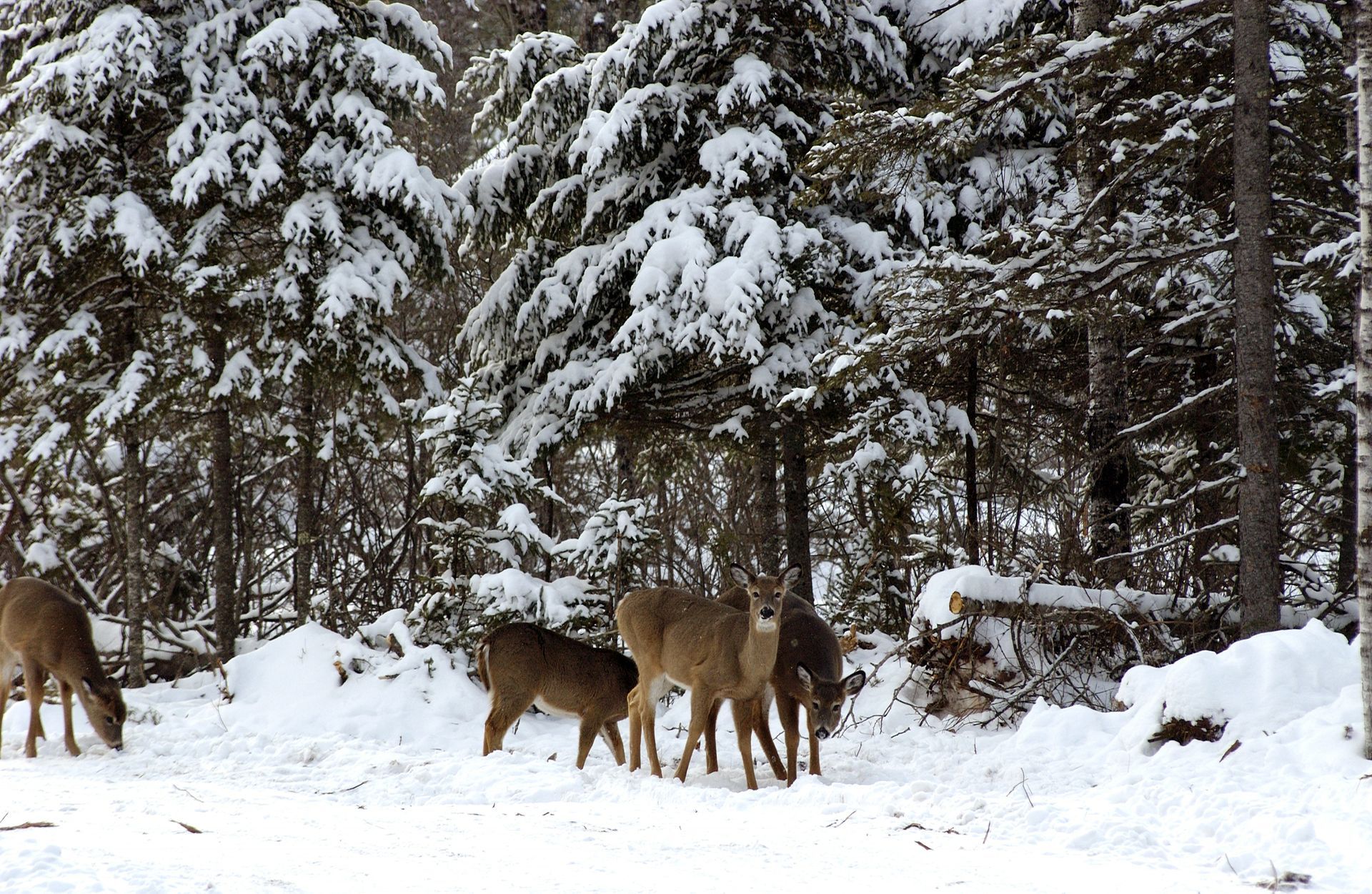White-tailed Deer: How do they Survive Michigan Winters?
White-tailed deer ( Odocoileus virginianus ) are considered to be one of the most popular game species in Michigan, and for good reason. Nothing beats the adrenaline rush when a big buck walks out in front of your hunting spot. During this time of year, deer are well adapted to survive the cold and snow, but why are some years worse than others in terms of deer mortality? Read on to find out how deer survive our Michigan winters, and what they need to ensure they make it to next fall.
Winter is the most critical time of year for white-tailed deer because food sources can become scarce, and food availability determines body condition, winter survival, and reproduction. Many farmers have already cut down their corn fields in the fall, and corn provides a good source of digestible energy for deer. So what do deer eat instead of corn? The majority of their diet in winter consists of woody browse, branches, buds, and leaves. Deer prefer certain tree and shrub species if they are available, like white pine, white cedar, red maple, yellow birch, dogwood, and sumac. Other species that deer will browse include aspen, oaks, jack pine, ash, and witch hazel. If nothing is available and deer are in a “starvation” mode, they will consume conifers such as spruce, red pine, and balsam fir.

Winter can also be detrimental to white-tailed deer due to a lack of thermal cover. Thermal cover is important because it protects from the elements; wind, cold, and snow. Cover can be found in hardwood and conifer swamps, brushy areas, and dense switchgrass or pines. Mature conifers and hemlock trees are especially important because they provide dense canopies, which can help slow the strong winds the deer might experience. As a general rule, deer will stay close to thermal cover in the winter and don’t like to travel far to find food sources. Their insulating fur coat and fat reserves also help conserve body heat when the temperatures drop.

The post White-tailed Deer: How do they Survive Michigan Winters? appeared first on Michigan United Conservation Clubs .
Recent Posts



